
SDG 5 – Femicide Against Women in Israel
Gender Equality “An eyewitness told police in the past few days that she had seen the gang rape and murder of a young woman hiding


Considering its neighbors, Israel is a rare gem of gender equality in the Middle East.
According to Israeli law, that is, the Women’s Equal Rights Law, passed by the Knesset in 1951 women are guaranteed protection against gender discrimination and abuse. The passage of this law paved the way for a series of laws to create an environment where women thrive. In 1964, Israel passed the Male and Female Workers (Equal Pay) law to ensure equal pay for women. In 2007, the Knesset passed the Gender Implications in Legislation Law, which requires all legislation be analyzed in terms of gender before ratification.


In Israel today, women are able and encouraged to participate in politics, business and the military. Not only are they participating, in fact, Israeli women are taking the lead in all of these sectors.
In the world of Israeli politics, it all began with Golda. In 1969, when Golda Meir was elected prime minister, Israel became just the third country in the world to elect a woman to lead its government. After that the doors were blown wide open for women in Israeli politics: They have gone on to become chief justice of the Supreme Court, speaker of the Knesset and the permanent representative to the United Nations.
In the Knesset, every party but two (including the Arab Joint List) has female members. Even Ultra-Orthodox women formed their own party in 2015 to give a voice to their party’s concerns.
Insofar as women in the workforce is concerned, Israel still has room for growth. The Employment Diversity Index, published in 2018 found that women from minority groups (such as Arabs, Ethiopians and ultra-Orthodox Jewish women) who held academic degrees faced greater obstacles in the labor market than non-academic women, both in terms of type of employment and pay. With this, Israel still has the highest female entrepreneurship rate in the world. More than 30 percent of managerial positions in Israel’s top 100 companies are held by women.
Strong both inside and out, 1,500 Israeli women are assigned to combat positions annually. According to the Equality Amendment to the Military Service Law, women and men have equal rights to serve in any role in the IDF. But not only are Israeli women serving in the military, they are rising through the ranks. They now account for 57 percent of officers among conscripts and 15 percent of top officer positions.
In all respects, Israel has indeed become a haven for women:
Education: Women comprise 57 percent of all students in higher education (according to a 2014 study). Arab women represent 60 percent of Israeli Arab university students.
Child-bearing: Israeli women receive up to 14 weeks of paid maternity leave. If a mother wishes to waive a portion of her leave, the father receives a paternity allowance for the remaining time. Fertility treatments and in-vitro fertilization for up to two children are covered under public health insurance. Pregnancy terminations are covered as well, and women are legally protected with the right to choose.
Women’s health: Biennial mammograms for women over the age of 50 are also covered under public health insurance.
A plethora of women’s organizations working to promote women’s rights. The first such organization in Israel was Na’amat, which was founded in 1921 and today includes over 800,000 Jewish, Muslim and Christian women.


Gender Equality “An eyewitness told police in the past few days that she had seen the gang rape and murder of a young woman hiding


Gender Equality Even before the October 7 Hamas massacre, 2023 was destined to be remembered as one of the most turbulent in Israel’s history. No


Gender Equality Just before all the noise surrounding the recent fall of Israel’s government, something no less ground breaking occurred: the Health Minister – who


Gender Equality “Maala,” the Environment, Social and Governance (ESG) standard-setting organization recently released its annual 2023 index on developments in the private sector at a


Gender Equality Like every year, the UN’s recently noted annual International Day for the Elimination of Violence Against Women elicited the usual array of condemnations,


Gender Equality Read Part 1 In Part 1 of this series we presented a bird’s-eye overview of Israel’s new budget. Here we’ll drill down on


Gender Equality Read Part 2 We’ve made cursory reference, on a number of occasions, to gender equality in Israel. It is time to expand on


Gender Equality Read Part 1 As emphasized in part 1 one of this series, “distortions that discriminate against women” in Israel has been a matter


Gender Equality The current COVID-19 pandemic has led to a severe increase in domestic violence in many societies around the globe and in Israel. In


Gender Equality A year and a half after its approval by Israel’s parliament (Knesset), this past week a law took effect criminalizing the procurement of


Gender Equality As detailed in Part 1 of this series, Israel has entered a new phase in combatting human trafficking. Recognizing that enforcement is just


Gender Equality Israel, a top 20 County in the Global Innovation Index 2018, fourth in Bloomberg’s innovation index and a recent report named Tel Aviv


Gender Equality Things are looking up for Israeli women. According to a recent study, by the Central Bureau of Statistics, 89% of women in Israel


Gender Equality Traditional values in the practice of gender equality Havruta is the Talmudic Aramaic word for fellowship, alliance, companionship. There could not be a
Developed for the Betterment of Humanity
